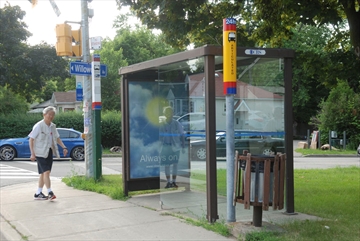TORONTO - Premier Kathleen Wynne and her Liberal government have pledged $29 billion over 10 years to improve transit and infrastructure in the province.
In the spirit of helpfulness and co-operation, and as someone who’s lived in the transit-starved suburbs and uses the TTC frequently, here are my top 10 tips for improving transit:
1. Stop arguing and do something.
Take politics out of transit. This all started with the Liberals’ horribly flawed Vaughan subway line.
A well-heeled suburb like Vaughan, with its vast fleets of SUVs and minivans, should never have been a transit priority.
Build subways to parts of the city where low-income workers have no other way to get to work other than by TTC.
Then build there.
2. Charge by distance travelled.
It’s ridiculous that it costs the same to go from the outer reaches of Scarborough to downtown as it does to go a few blocks. Implement zoned fares.
This would raise more money for transit from the people who use it. And look at the disparity between GO Transit and TTC fares. GO costs much more than the TTC.
Rationalize the two systems.
3. Scrap Metrolinx.
Designed as a means to get politics out of transit, the agency has turned into an unnecessary, self-entitled black hole for taxpayer dollars. It’s a complete waste of money and has only added another layer of bloated bureaucracy.
4. A better way to get politics out of transit would be to sell off the TTC.
Let the private sector decide where new lines go.
If we injected private sector discipline into transit expansion, lines would go where the customers are instead of where politicians believe they can get the most votes.
5. Wynne seemed to wobble on her commitment to build subways to Scarborough recently.
She was asked if she’d back away from subways if Toronto’s next elected mayor supports LRTs.
“It’s the plan that’s in place, but as with all of these things, we need to work in co-operation with all the municipalities,” she said.
While Mayor Rob Ford supports a subway for Scarborough, other candidates such as Olivia Chow have said they prefer light-rail transit (LRT) projects.
Wynne would not speculate on what the provincial government would do if Toronto voters elect someone who supports LRTs.
“Look, I assume all the candidates who are running understand that building transit in Toronto and beyond is an important part of our economic growth and our community’s well-being,” she said.
What TTC and GO need to do is create a transit hub where highways, subways and GO meet in eastern Scarborough.
Build a 10-storey parking garage so commuters can ditch their cars on the outskirts of Toronto and take transit in.
And that means subways -- not LRTs.
Subways are a better long-term investment. You get an extra lane of transit without losing a lane of road.
They work better in the Canadian climate.
6. Don’t stop building subways.
That’s how this city got into the mess we’re in now. Build at least 10 kilometres of track a year.
7. Don’t implement a congestion charge as they have in London.
The British city has an extensive transit system that gives people numerous options for getting around. They don’t have to drive.
Don’t punish drivers until those alternatives are in place.
8. Downtown Toronto is not the centre of the transit universe. People need to get around the entire GTA.
Have an integrated fare card, so people don’t have to pay one fare on Mississauga Transit and another for the TTC and another for GO.
Start to think like the vast, integrated metropolis we are and not like a group of unconnected villages with parochial interests.
9. While politicians of all stripes and at all levels squabble, the travelling public are squeezed into overcrowded buses, streetcars and subways.
Here’s a challenge to all politicians: Get out of your limos and SUVs and take transit. Not just for a one-day photo op. Take it every day. It should be a requirement for any politician making decisions about transit spending.
You want to plan transit lines? Get on a bus.
10. Again, for the politicians: Make a decision. Base it on facts, not emotion.





